13. Killers of the Flower Moon (2023)
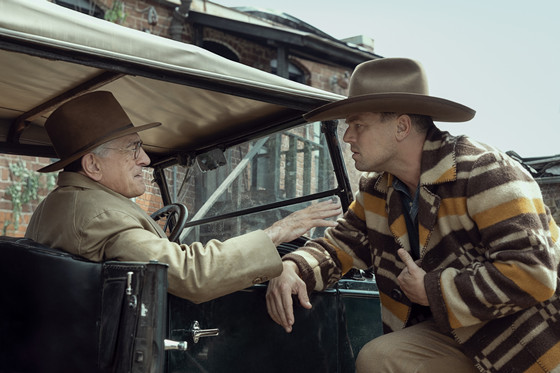
This perverse tale of greed, blood and betrayal adapted from David Grann’s true-crime book is an all-encompassing account of one of the darkest chapters of early 20th-century US history, a brilliant showcase for a staggering ensemble cast led by Lily Gladstone, Leo DiCaprio and Robert De Niro, and a chilling dismantling of the American Dream that belongs squarely within the director’s expansive canon.
Scorsese’s latest film bears witness to the grizzly series of murders committed by white settlers in order to steal money from an Osage Nation family that had struck oil on their land and become rich in 1920s Oklahoma. It’s a singular, powerful, melancholy and brutally honest epic that dispels any romantic ideals about America or the bone-deep prejudices that defined the nation’s origin myth. In other hands, it could’ve been a conventional white-savior narrative about a resourceful FBI agent slowly piecing together the clues and saving the day. But at 80 years old, Scorsese goes deeper, putting the audience in the shoes of the evil perpetrators and making us feel complicit in allowing their atrocities to be so easily forgotten.
12. The Departed (2006)
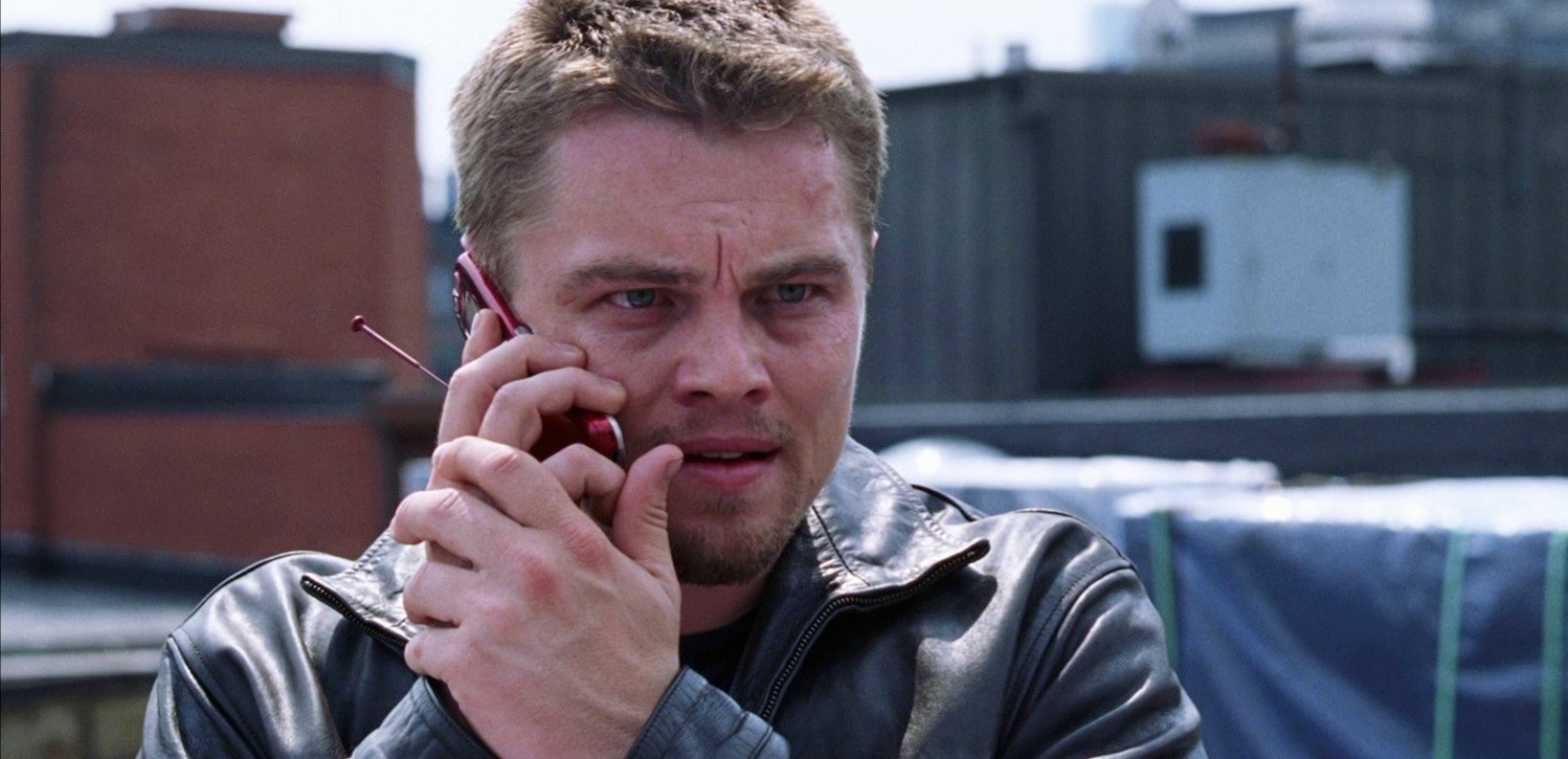
Almost as penance for snubbing him many times over in the past, the Academy jury voters finally decided on giving Marty the Oscar for directing this high-octane thriller about an undercover cop who must infiltrate the Irish mob while trying to identify a mole in the police department who’s hot on his trail.
In freely updating the superb 2002 Hong Kong thriller “Infernal Affairs” to South Boston’s seedy underworld, Scorsese doesn’t try anything too fancy but still makes the film feel wholly and unmistakably his own. Boasting a barrage of twists, pop-music cues, and top-caliber work all across the board — including deliciously hammy acting by Jack Nicholson, who dials up to 11 for his Scorsese one-off as ruthless mob kingpin Frank Costello — this is the rare kind of film endlessly quoted by casual filmbros and hardcore cinephiles alike you just simply stop and watch whenever it’s on cable.
11. The Irishman (2019)
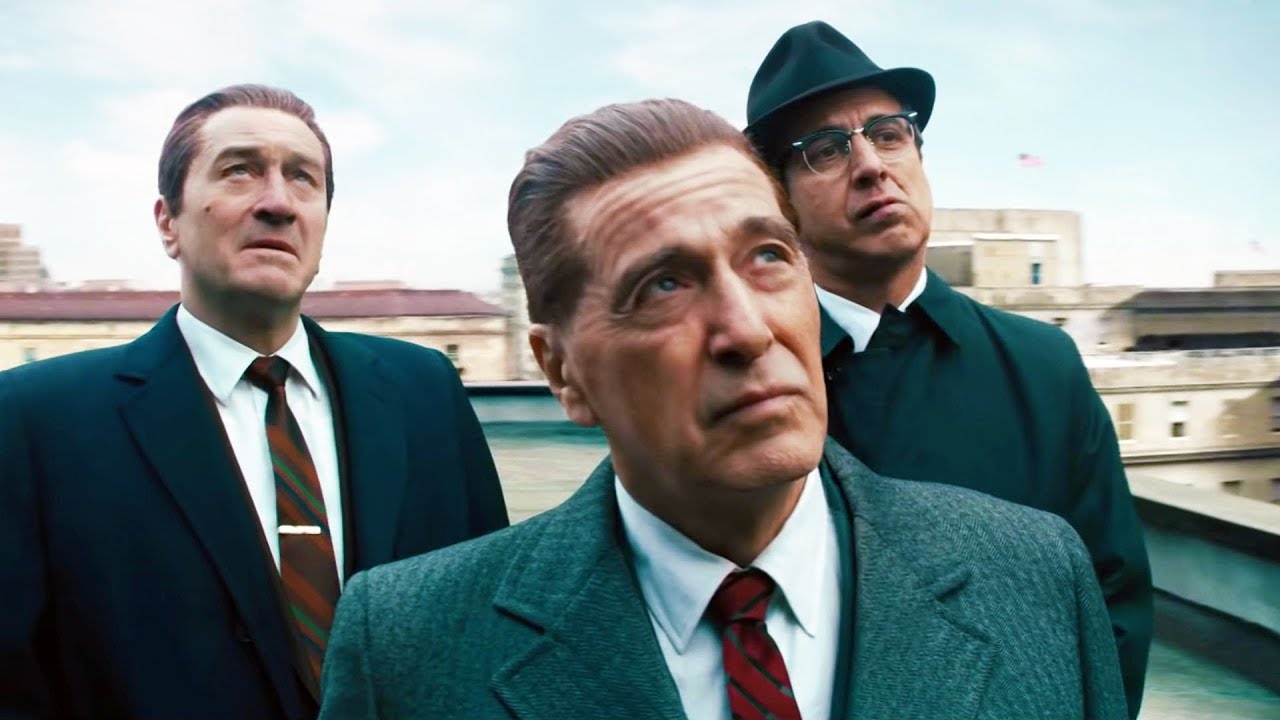
Much ink has been spilled over the unconvincing de-aging tech and 209-minute runtime of “The Irishman”, a grand-scale tale of betrayal, aging, and regret based on the memoirs of Frank Sheeran, a truck driver-turned-ruthless hitman for the Bufalino crime family and betrayed his close friend Jimmy Hoffa during the 1960s.
Warts and all, we retain a lot of residual love for Scorsese’s mournful coda to his signature genre, which saw him reunite with three of his most prominent collaborators (De Niro, Pesci, and Keitel) and link up with Al Pacino for (somehow) the first time in his career. That this Netflix-backed tentpole lacks the flash, gleefulness or formal audacity of Scorsese’s early stabs at the genre is not a bug, but a measured choice that makes sense when you realize this is the director’s way of confronting his own mortality. Talk about an all-timer final shot that lingers as the credits roll.
10. The Wolf of Wall Street (2013)
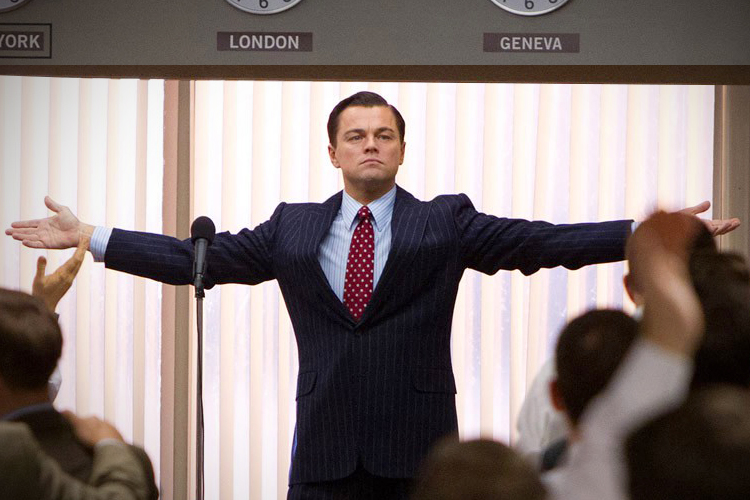
Whether it’s throwing out parties, bribing federal agents, or defrauding would-be investors out of millions of dollars, Leonardo DiCaprio plays real-life corrupt stockbroker Jordan Belfort with such persuasive zest that it’s not entirely surprising that an alarming number of impressionable young viewers have completely misread this scathing cautionary tale as an inspirational rags-to-riches story.
In adapting the memoirs of the decadent, self-absorbed and coke-fueled swindler who cheated his way up through the top ranks of the corporate banking world, Scorsese makes his anti-capitalist tenor clear — lacing his satirical jabs on the evil corporations and snake-oil salesmen that inhabit the Wall Street ecosystem. It’s a testament to his filmmaking prowess that the three-hour bacchanalia of excess and depravity he put out without breaking a sweat is so raucously funny you have a hard time prying your eyes away from it.
9. Casino (1995)
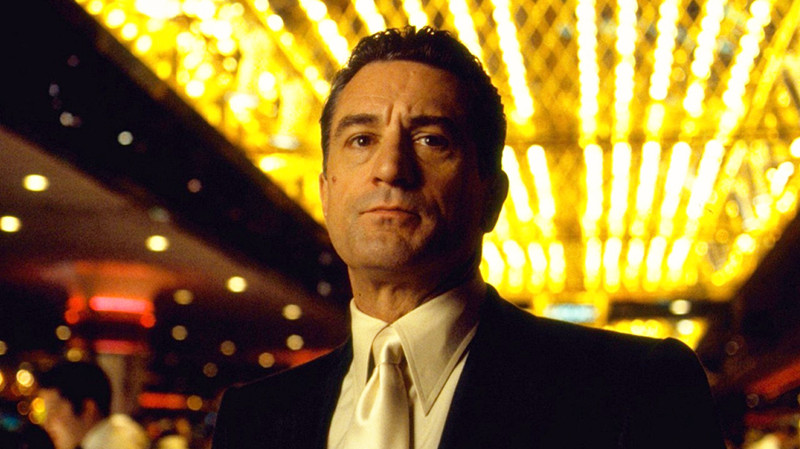
A fair number of critics initially dismissed this panoramic view of 1970s Mob-run Las Vegas as a minor retread of “Goodfellas”, another gangster saga based on a Nicholas Pileggi text that applied an almost identical rise-and-fall template and also happened to star Robert De Niro and Joe Pesci as foul-mouthed, trigger-friendly hoodlums.
In hindsight, though even the most dedicated Scorsese acolyte would have a hard time putting it in the same tier as its lofty predecessor, it’s too bad that “Casino” got a little lost in the shuffle. Judged strictly on its own terms, the story of shady bookie Sam “Ace” Rothstein vying for control and power in Sin City is an impressive achievement anchored by some of Thelma Schoonmaker’s finest editing to date and a red-hot performance by Sharon Stone as De Niro’s indomitable mob wife. A must-watch for any crime aficionados and Scorsese-heads worth their salt.
8. The Last Temptation of Christ (1988)
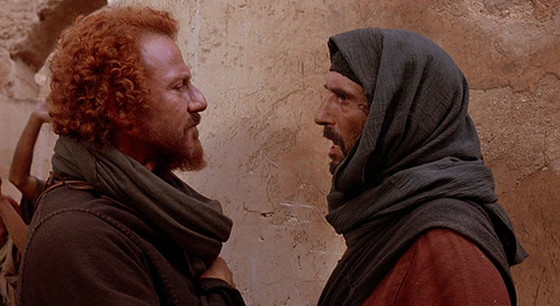
Scorsese wanted to become a priest before he figured out his true calling, and themes of faith, sacrifice and redemption run through his entire film catalog. Having recently sat down with the Pope, the veteran director announced he’s planning to make another movie about Jesus. That’s all well and good, but Scorsese already said his piece and proved the ideal match for Paul Schrader’s script about Christ’s life, death, and resurrection back in 1988 with this controversial Willem Dafoe-led epic.
In taking a new approach to a well-worn biblical-era story that thoroughly explores the inner turmoil and spiritual plight troubling the Son of God, “The Last Temptation of Christ” weaves a more relatable, compelling, and virtuous character than any sanitized, Vatican-approved on screen portrayal ever could. Make no mistake: The only legitimately blasphemous thing about this film would be not to judge it by its own merits.
7. Mean Streets (1973)
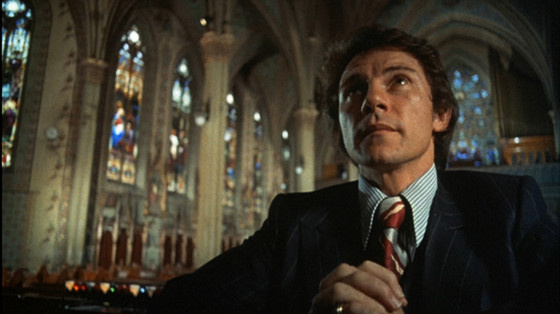
One of the true watershed moments in American New Wave cinema, this gritty snapshot of 1970s New York drawn from Scorsese’s own experience in Little Italy almost instantly sealed his place as one of Hollywood’s preeminent auteurs.
Half a century later, this early-career breakthrough is mostly noteworthy for introducing moviegoers to the exuberant presence and scenery-chewing charms of Robert De Niro, who sucks up all the oxygen in the room from the very first moment he pops up on the screen as Johnny Boy, the reckless punk friend of Harvey Keitel’s morally compromised small-time hoodlum. The fault lines of life in the margins, self-destructive masculinity, and Catholic guilt on top of many other Scorsese hallmarks that the director would frequently revisit further ahead in his career are all par for the course here.
6. After Hours (1985)
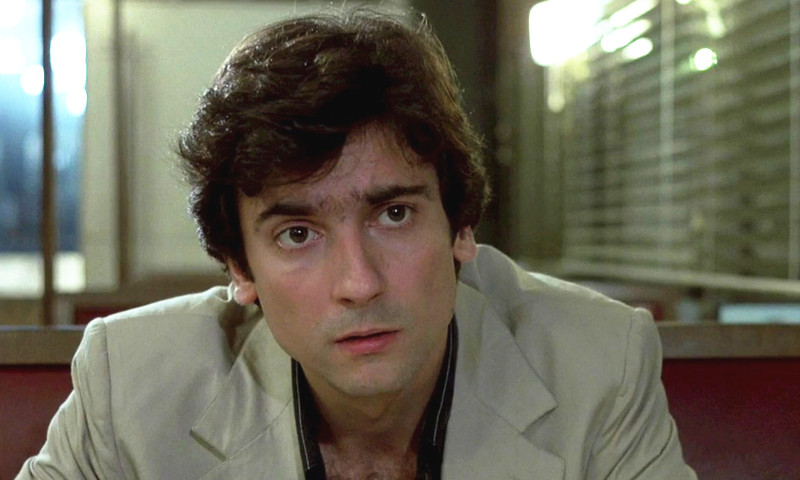
While hung up with his ongoing passion project (“The Last Temptation of Christ”), Scorsese quickly churned out this anxiety-ridden screwball comedy about an unassuming Manhattan yuppie (played to great effect by Griffin Dunne) who ventures downtown for an after-midnight hookup with a beautiful young woman only to wind up stranded at Soho with no means of returning home.
What starts as a meet-cute turns into a Kafkaesque comedy of errors that bounces from one bizarre encounter to the next, as we watch the film’s office-drone protagonist’s unrelenting quest to get home hilariously thwarted in increasingly unexpected ways. Though mostly ignored in its initial release and rarely cited among established Scorsese classics, this 1985 nocturnal odyssey has aged well to say the least, slowly growing into a cult classic and quintessential New York staple that reminds us of the magic and mystery of the city that never sleeps.
5. Silence (2016)
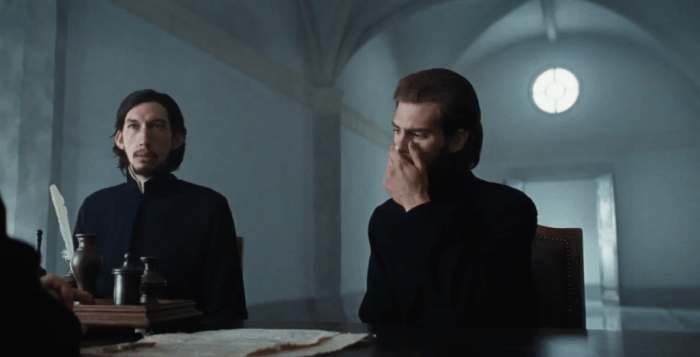
After a couple of false starts, Martin Scorsese’s long-gestating adaptation of Shusaku Endō’s 1966 novel finally made it to the big screen seven years ago, and boy, was it worth the wait. The silence of God speaks volumes in this low-key, elegiac period drama featuring Andrew Garfield and Adam Driver as two Portuguese priests whose faith and resilience is tested while traveling to 17th-century Japan in search for their Catholic mentor (Liam Neeson), who is rumored to have apostatized.
You’d never guess this challenging, introspective, and thematically complex rumination on faith was made by the same guy who’d just dropped “The Wolf of Wall Street” three years prior. Slow, patient, but as gripping as any Scorsese movie before or after, “Silence” is an epic of intimate proportions that only improves as you wrestle with it.
4. The King of Comedy (1982)
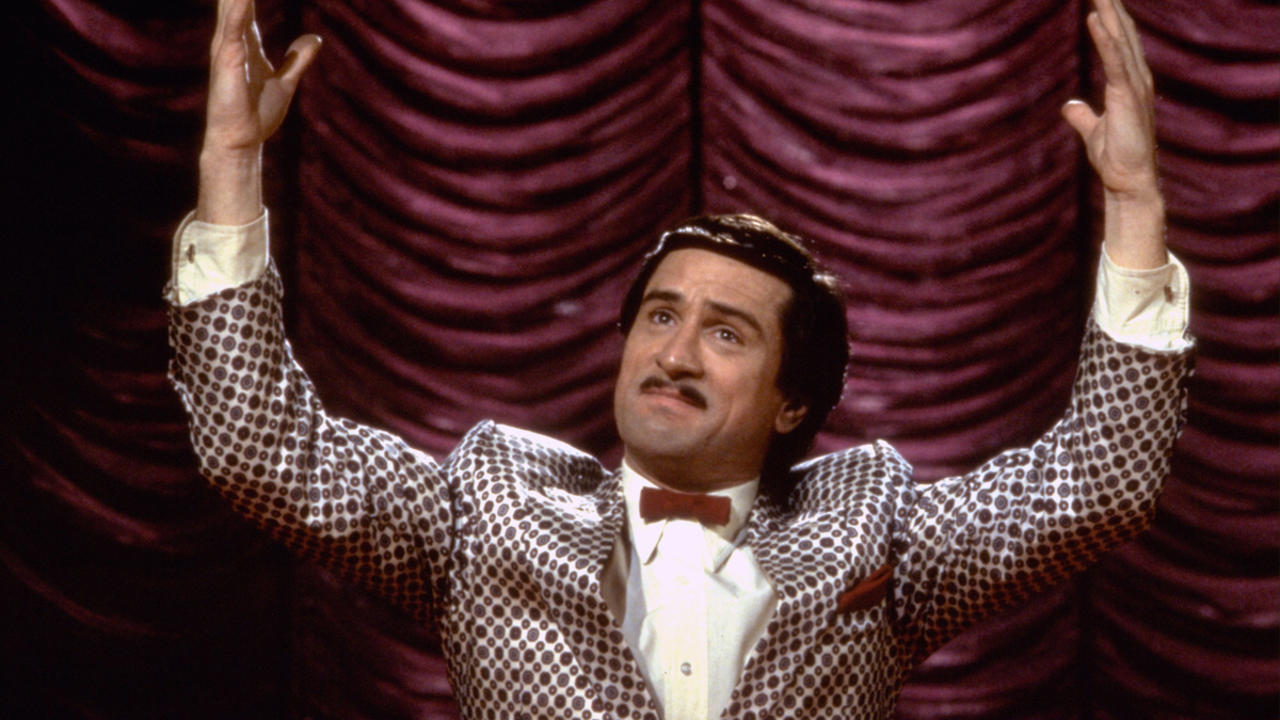
When Travis Bickle went on his own venomous tirade about how “someday a real rain will come and wash all the scum off the streets,” chances are he wasn’t just thinking about degenerate pimps but also pathetic losers like Rupert Pupkin. A talentless wannabe comedian who craves nothing more than to have his 15 minutes of television fame even even if he has to kidnap a late-night talk show host to get them, De Niro’s delusional comic surely ranks as one of the creepiest and most embarrassing schnooks in a filmography chock-full of them.
Time has been kind to Scorsese’s pitch-black comedy, a notorious commercial flop that has gradually been rehabilitated for its prescient commentary on celebrity culture, which anticipated the media-obsessed culture that has become ever so prevalent nowadays. Moments in the film that were once supposed to evoke laughter take on a whole other meaning forty years on, in a moment in time where online pick-up artists and basement-dwelling influencers permeate all social media.
3. Raging Bull (1980)
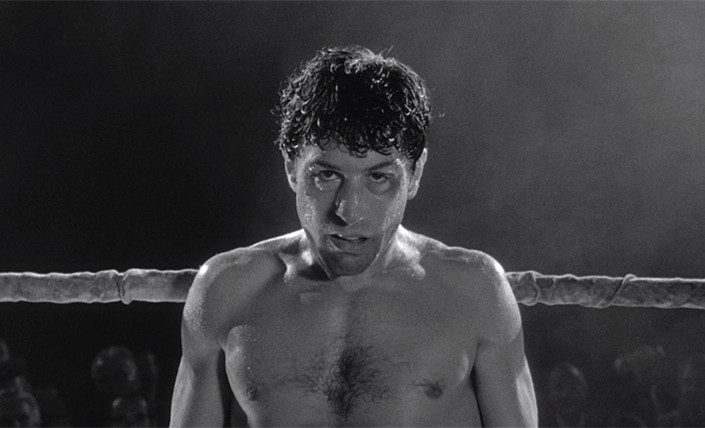
After inhabiting some of the most enduring and morally complex characters of the 1970s decade, Robert De Niro ascended to new heights of performance as Italian American middleweight champ Jake LaMotta, a career-defining turn for which the actor picked up his second Oscar and gained a whopping 60 extra pounds in order to play the washed-up version of his character in the third act of the film.
One of the great entries in the “feel-bad” movie canon, “Raging Bull” deepened Scorsese’s career-long study of self-destructive masculinity by exploring the dark interiors of LaMotta’s tortured soul and tracing the highs and lows of a turbulent life tragically sabotaged by jealousy, temper and self-doubt. In a frowned-upon genre like sports biopics that often relies on tired clichés, one can only stand back and marvel at Scorsese’s accomplishment, a capital-M Masterpiece that helped him exorcize his own inner demons and get his career back on track.
2. Taxi Driver (1976)
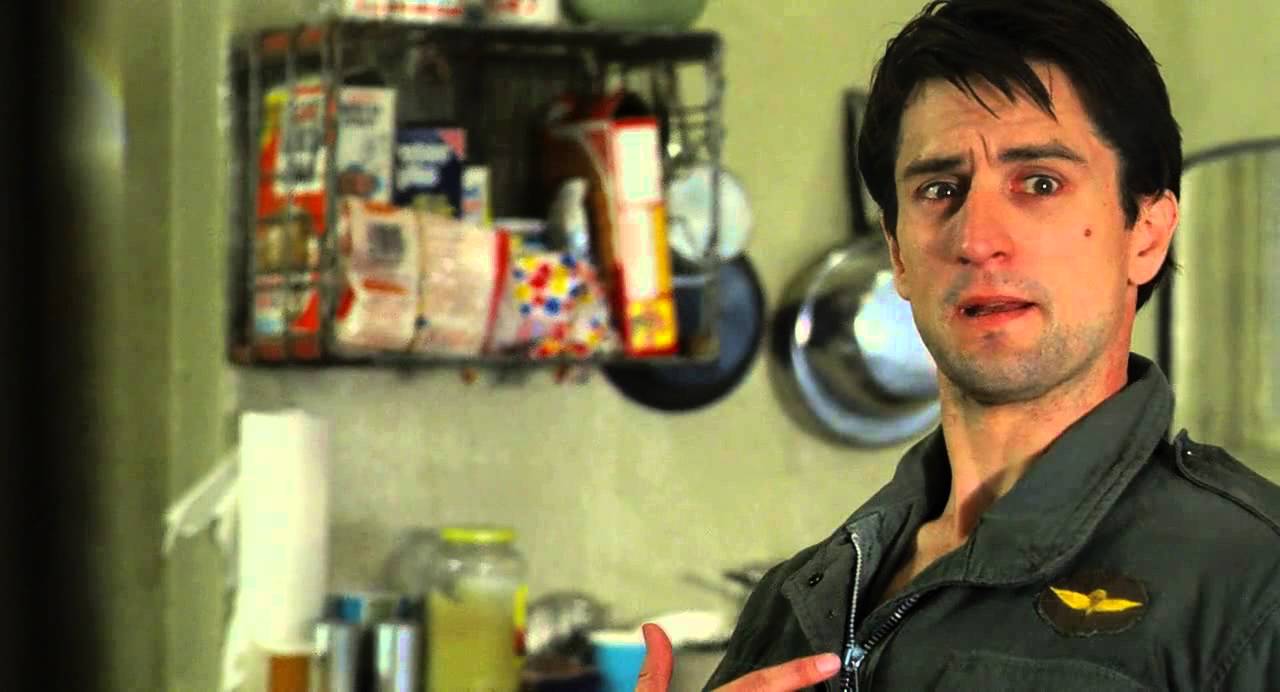
You’d think that after infiltrating the public imagination for the past half century, with a sizeable number of anti-social men having built an entire mythology around the movie and contemporary comic-book adaptations now liberally pilfering ideas from it, that time might have already began to soften its rougher edges. But as multiple, enriching visits reveal, “Taxi Driver” holds up magnificently.
In putting us in the shoes of Travis Bickle, an alienated Vietnam vet-turned-late-night cabbie who roams through New York’s filthy streets with a violent rage boiling underneath, Scorsese captures the yearning of a particular kind of disillusioned, embittered soul dangling on the edge of despair that very much still exists today. As the central reference point for his creative marriage with De Niro, this is Scorsese’s closest brush with perfection — a work of art that couldn’t exist without one, just as it couldn’t exist without the other.
1. Goodfellas (1990)
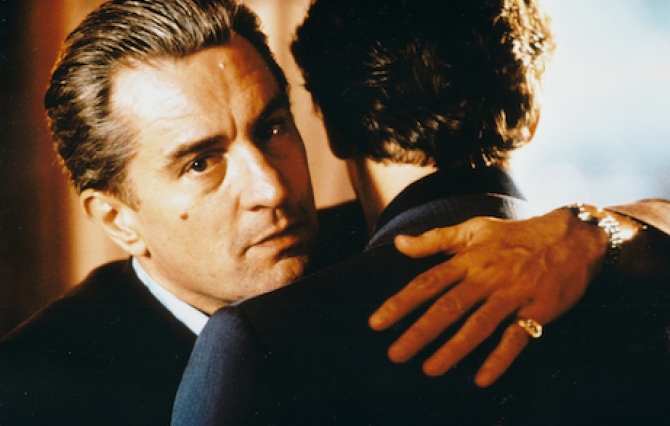
Still Scorsese’s masterpiece — his funniest, most quotable and compulsively rewatchable movie to date — is this operatic gangster drama based on real-life mobster-turned-informant Henry Hill, a half-Irish, half-Sicilian Brooklyn kid who climbed the ranks of an Italian-American crime syndicate.
Often imitated but never replicated, “Goodfellas” ticks off all of Scorsese’s itches and trademark obsessions, observing the interplay between the sacred and the profane; camaraderie and betrayal and the steep price of running afoul of the law at a deep, granular level. In guiding the viewer through a madcap ride of excess before arriving at the conclusion that crime doesn’t pay, Scorsese simultaneously acknowledges the lure of the criminal lifestyle he so vividly depicts while being utterly repulsed by everything these wise guys stand for.
To say “Goodfellas” holds up remarkably well would be an understatement — it is undoubtedly one of the capstone achievements in Scorsese’s career and the kind of movie you have to watch from start to finish whenever you come across it on cable.